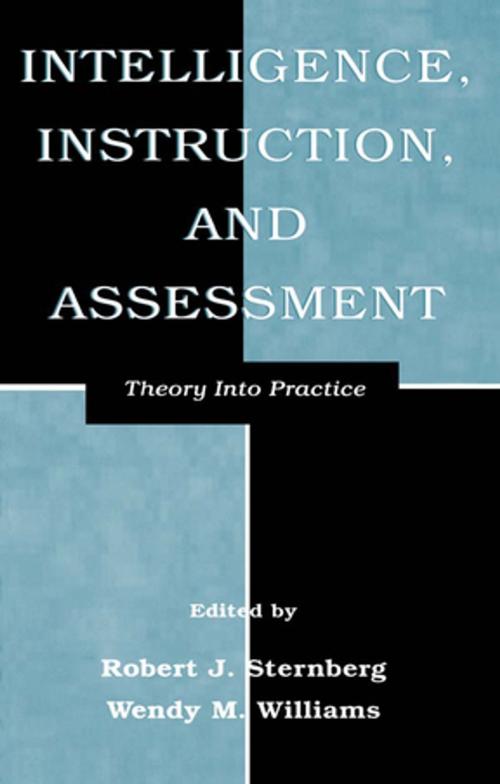Intelligence, Instruction, and Assessment
Theory Into Practice
Nonfiction, Reference & Language, Education & Teaching, Educational Theory, Educational Psychology| Author: | ISBN: | 9781135686574 | |
| Publisher: | Taylor and Francis | Publication: | July 1, 1998 |
| Imprint: | Routledge | Language: | English |
| Author: | |
| ISBN: | 9781135686574 |
| Publisher: | Taylor and Francis |
| Publication: | July 1, 1998 |
| Imprint: | Routledge |
| Language: | English |
Intelligence, Instruction, and Assessment shows how modern theories of intelligence can be directly applied by educators to the teaching of subject matter, regardless of the age of the students or the content being taught. It is intended primarily for teachers at all levels--elementary, secondary, tertiary--who want to apply in their classrooms what we know about intelligence. The focus is not on modifying students' intelligence, per se, but on increasing their disciplinary knowledge and understanding. Hence, this book will help teachers learn how they can teach more effectively what they are already teaching. The assumption is that what teachers care most about is how they can improve upon what they are already doing, and how they can learn what they need to do in order to be more effective in their work.
The contributors are well known for their work on intelligence and education. Each chapter includes an accessible explanation of the author's theory of intelligence, and discusses the implications of that theory both for instruction and for assessment. The book is international in scope, reflecting both American and European perspectives.
Anyone interested in knowing how modern theories of intelligence can be applied to education will want to read this book--particularly teachers and other education specialists, as well as developmental psychologists, cognitive psychologists, and philosophers with an interest in applying psychological theory to classroom practice. It will serve well as a text for courses on educational psychology, intelligence, cognition and instruction, and foundations of teaching.
Intelligence, Instruction, and Assessment shows how modern theories of intelligence can be directly applied by educators to the teaching of subject matter, regardless of the age of the students or the content being taught. It is intended primarily for teachers at all levels--elementary, secondary, tertiary--who want to apply in their classrooms what we know about intelligence. The focus is not on modifying students' intelligence, per se, but on increasing their disciplinary knowledge and understanding. Hence, this book will help teachers learn how they can teach more effectively what they are already teaching. The assumption is that what teachers care most about is how they can improve upon what they are already doing, and how they can learn what they need to do in order to be more effective in their work.
The contributors are well known for their work on intelligence and education. Each chapter includes an accessible explanation of the author's theory of intelligence, and discusses the implications of that theory both for instruction and for assessment. The book is international in scope, reflecting both American and European perspectives.
Anyone interested in knowing how modern theories of intelligence can be applied to education will want to read this book--particularly teachers and other education specialists, as well as developmental psychologists, cognitive psychologists, and philosophers with an interest in applying psychological theory to classroom practice. It will serve well as a text for courses on educational psychology, intelligence, cognition and instruction, and foundations of teaching.















